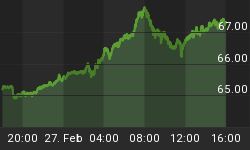British PM Theresa May’s Brexit deal lost by a huge margin on Tuesday, and though her government survived a no-confidence vote, the country’s exit from the EU, which is only 72 days away, is going to like setting out for sail on the high seas with no course.
For May, the 432-202 voting defeat was a litmus test for her government, but it was never going to be easy and the resounding loss came as no surprise to anyone given the solid opposition that has been clear for the past eight months.
In the meantime, the Labour party’s Jeremy Corbyn is taking advantage of the moment to forward a motion for a no-confidence vote that could lead to general elections—and he’s promised to renegotiate Brexit, though he hasn’t promised another public referendum on the issue.
The no-confidence motion is expected to be held Wednesday, January 16th at 1900 GMT, at which time—in Corbyn’s own words, the House of Commons will “give its verdict on the sheer incompetence of this government”.
If May survives a no-confidence vote, then she’ll need a backup plan for a Brexit deal, and she’ll need to try to negotiate further with Brussels for more concessions.
If May fails get a new deal approved for Brexit, then the exit will be on March 29 with no safety net at all, which would usher in a period of severe economic risk. But a no-deal Brexit is almost a certainty itself now, because—as May told Parliament—there is no other viable option and “no such alternative deal exists”. Related: What Top Financial Analysts Are Saying About Brexit
The past year saw Brexit take the British pound for a wild ride, with Sterling slumping 7 percent in 2018 over the uncertainty. Tuesday evening saw Sterling rise 0.1 percent to $1.289 after the Brexit vote.
But what about the possibility that there will be no Brexit at all?
"The probability of a no deal has diminished while the chances of a delay in Article 50, a second referendum or even, at the margin, no Brexit at all, have all increased. The consequence of those scenarios has encouraged sterling to rally despite the PM suffering the worst parliamentary result in a century," Jeremy Stretch of CIBC Capital Markets, told the BBC.
The BBC also quoted hedge fund manager Crispin Odey as saying last weekend that he expected Brexit to be abandoned entirely and the pound to strengthen. But that wasn’t the consensus sentiment ahead of the vote, with many expecting the pound to get further pummeled by a big defeat for May because it ushers in a new phase of uncertainty with a no-confidence vote.
Related; How Advertisers Are Forced Into Politics
The possible reason that the pound pared losses after the vote is because there is now a window—however small—for there to be no Brexit at all. May has said in the past that either her deal goes through, or there will be no Brexit at all, but she’ll have to win a no-confidence vote on Wednesday to take that any further. And in December, the European Court of Justice ruled that the UK could unilaterally end Brexit plans.
That theory gained further credence on Tuesday night when European Council President Donald Tusk actually suggested cancelling Brexit as the only real solution left.

(Click to enlarge)
By David Craggen for Safehaven.com
More Top Reads From Safehaven.com
















